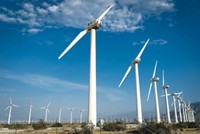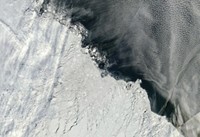Advertisement
Grab your lab coat. Let's get started
Welcome!
Welcome!
Create an account below to get 6 C&EN articles per month, receive newsletters and more - all free.
It seems this is your first time logging in online. Please enter the following information to continue.
As an ACS member you automatically get access to this site. All we need is few more details to create your reading experience.
Not you? Sign in with a different account.
Not you? Sign in with a different account.
ERROR 1
ERROR 1
ERROR 2
ERROR 2
ERROR 2
ERROR 2
ERROR 2
Password and Confirm password must match.
If you have an ACS member number, please enter it here so we can link this account to your membership. (optional)
ERROR 2
ACS values your privacy. By submitting your information, you are gaining access to C&EN and subscribing to our weekly newsletter. We use the information you provide to make your reading experience better, and we will never sell your data to third party members.
Environment
Climate Scientists Refine Study Of Global Warming And The Effects Of Climate Change
Better computing power and climate models affirm that average temperatures will continue to rise and point to potential impacts on global ecosystems
by Stephen K. Ritter
December 23, 2013
| A version of this story appeared in
Volume 91, Issue 51

COVER STORY
Climate Science: Global-Warming Affirmations
Grab an umbrella. Take a coat. Wear shorts. We are always thinking about the day-to-day weather. But when it comes to the long-range forecast, as in how warm it will be decades from now and how frequently we might experience severe storms, heat waves, and droughts, a more complex analysis is in order. To that end, this year the United Nations’ Intergovernmental Panel on Climate Change began releasing its latest report (C&EN, Oct. 7, page 13). The first section of the report describes the use of improved data and climate models and largely verifies and refines climate analyses from IPCC’s previous assessments, the last of which came out in 2007. Emissions of greenhouse gases, principally carbon dioxide, remain the main driver of climate change, and extreme hot weather events will increase in frequency, according to the report. One topic of continued uncertainty is the effect of aerosols on reflecting or absorbing sunlight and their influence on cloud formation. The bottom line is that without limits on greenhouse gas emissions, IPCC concludes, global average surface temperatures are likely to rise 2 °C by 2050, relative to a 19th-century preindustrial baseline. Other parts of the report are slated to be released in spring 2014. Meanwhile, an international research team offered an explanation this year for the observed slowdown in global warming during the past dozen years, which has perplexed climate scientists (C&EN, Nov. 11, page 22; Nat. Geosci. 2013, DOI: 10.1038/ngeo1999). The statistical analysis concluded that the 1987 Montreal protocol, which restricted the use of ozone-depleting fluorocarbon refrigerants, coupled with a reduction in methane emissions, has been unexpectedly effective in temporarily slowing the rate of warming. Many of the ozone-depleting compounds are more potent greenhouse gases than CO2. The IPCC report and new research findings will be taken under consideration as negotiators continue to slowly work toward a global climate-change treaty to control greenhouse gas emissions (C&EN, Nov. 11, page 23).





Join the conversation
Contact the reporter
Submit a Letter to the Editor for publication
Engage with us on Twitter